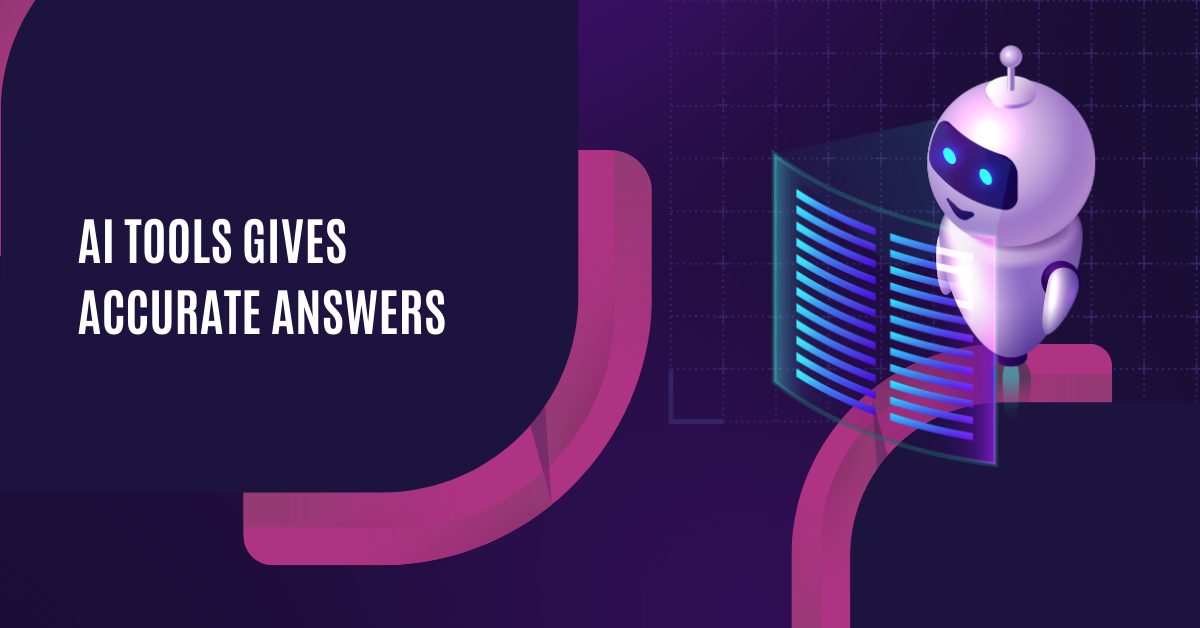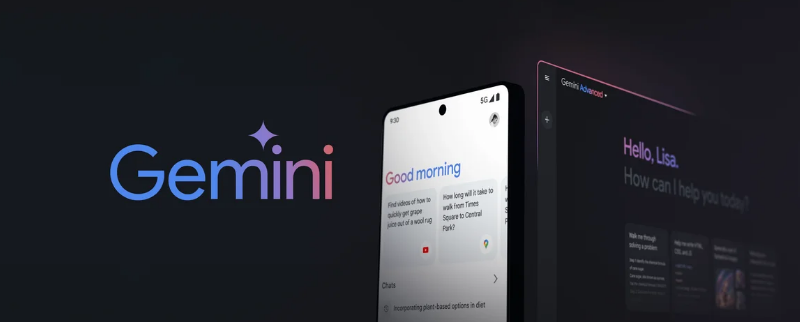
AI Tool Gives Accurate Answers. Artificial Intelligence (AI) has transformed how we access information, interact with technology, and make decisions. ChatGPT, Google Bard (gemini), Microsoft, and cloud AI-powered tools have become indispensable in fields such as research, business, education, and customer support. However, a crucial question remains: Which AI tool provides the most accurate answers?
The accuracy of an AI tool is determined by several factors. This article explores various AI tools and the key factors contributing to their accuracy.
Understanding AI Tools and Their Purpose
AI Tool Gives Accurate Answers. Before we compare AI tools, it is important to understand their purpose. AI tools are designed for different tasks, for example, answering questions, generating content, assisting with coding, summarizing information, and much more. These AI tools rely on machine learning models trained on huge datasets, allowing them to recognize patterns and give intelligent responses.
The accuracy of an AI tool depends on multiple elements, including:
• The quality and recency of the data it is trained on.
• Its ability to process and understand complex queries.
• Its reliance on real-time internet access versus pre-trained knowledge.
• The extent of human moderation and correction in its training process.
Let’s examine some of the most popular AI tools available today and assess their accuracy.
Comparison of Popular AI Tools
1. ChatGPT (by OpenAI)
Strengths:
• Developed by OpenAI, ChatGPT is one of the most widely used AI chatbots.
• It provides well-structured, contextually relevant responses.
• Excels in creative writing, reasoning, and problem-solving.
• It can generate code, summarize articles, and assist with various professional tasks.
Weaknesses:
• Lacks real-time internet access in its base form, meaning responses may be outdated.
• Does not cite sources unless specifically asked.
Accuracy Rating: 8.5/10
2. Google Bard (Gemini AI)
Strengths:
• Developed by Google, Bard (now known as Gemini) is connected to Google Search, allowing it to provide real-time information.
• It can cite sources, making it easier to verify facts.
• Regularly updated with Google’s latest AI advancements.
Weaknesses:
• Sometimes generates inconsistent answers, particularly on complex topics.
• Struggles with deep logical reasoning compared to ChatGPT.
• While it references sources, its accuracy depends on the quality of the search results.
Accuracy Rating: 8/10
3. Microsoft Copilot (formerly Bing AI)
Strengths:
• Integrated with Bing Search, allowing real-time web access.
• Can analyze images and generate visual content.
• Good for factual queries and up-to-date news.
Weaknesses:
• Sometimes, it is overly reliant on Bing search results, leading to biased or misleading information.
• Can provide contradictory responses depending on the phrasing of the query.
Accuracy Rating: 7.5/10
4. Claude AI (by Anthropic)
Strengths:
• Designed with a focus on safety, transparency, and ethical AI responses.
• Good at summarizing information and responding cautiously to ambiguous queries.
• Less prone to hallucination compared to other models.
Weaknesses:
• Does not have real-time search capabilities, limiting its access to the latest information.
• Sometimes too conservative in responses, avoiding answering certain queries altogether.
Accuracy Rating: 8/10
Factors That Determine AI Accuracy
1. Data Sources and Updates
• AI tools trained on outdated datasets may provide incorrect or incomplete answers.
• Real-time internet access improves accuracy for current events but may also introduce unreliable information.
2. Model Training and Fine-Tuning
• AI models improve over time through reinforcement learning and user feedback.
• OpenAI, Google, and Microsoft regularly update their models to enhance accuracy.
3. Bias and Misinformation
• AI tools can reflect biases present in their training data.
• Ethical AI design and human moderation help mitigate misinformation.
Choosing the Right AI for Accuracy
Best AI tool based on Task:
• For general knowledge & reasoning, ChatGPT (GPT-4) is a strong choice.
• For real-time information & search results: Google Bard or Microsoft Copilot.
• For safety-conscious responses: Claude AI.
• For professional and legal writing: Claude AI or ChatGPT.
• For coding assistance, ChatGPT (GPT-4) and Copilot are highly effective.
Tips for Ensuring Accuracy:
1. Cross-check information with multiple sources.
2. Rephrase and retry queries to get refined answers.
3. Use AI tools designed for specific needs (e.g, medical AI for health-related queries).
4. Verify citations and references when provided.
5. Be aware of AI limitations and avoid over-relying on a single tool.
Conclusion
Across all AI tools, no AI tool gives 100% correct answers. But some tools are better than others for different tasks. For example, ChatGPT excels at reasoning and contextual understanding, Google Bard is strong at real-time search, Microsoft Copilot integrates well with Bing, and Cloud AI prioritizes security and factual consistency.
The best approach is to use AI tools wisely – AI is a powerful tool, but human judgment is necessary to ensure accuracy and reliability.
Frequently Ask Questions
1. What factors determine the accuracy of an AI tool?
• High-quality data. You must train AI technology on high-quality, authoritative data free from biases and representative of real-world scenarious in which professionals operate.
• Domain and technical expertise.
• Security.
• Ethics.
2. How do AI tools retrieve and process information?
Deep Learning – A specific type of machine learning that allows AI to learn and improve by processing data.
3. Which AI tool is best for real-time data analysis?
• Microsoft Power BI.
• Tableau.
• Polymer.
• Qlik.
• IBM Cognos Analytics.
4. How does ChatGPT compare to Google Bard in terms of accuracy?
Google Bard has real-time access to the internet, which means that it can access the latest information and keep its responses up to date. ChatGPT, on the other hand, does not have real-time access to the internet.





Pingback: What are the Most Innovative AI tools in 2025? Understand in 5 minutes.